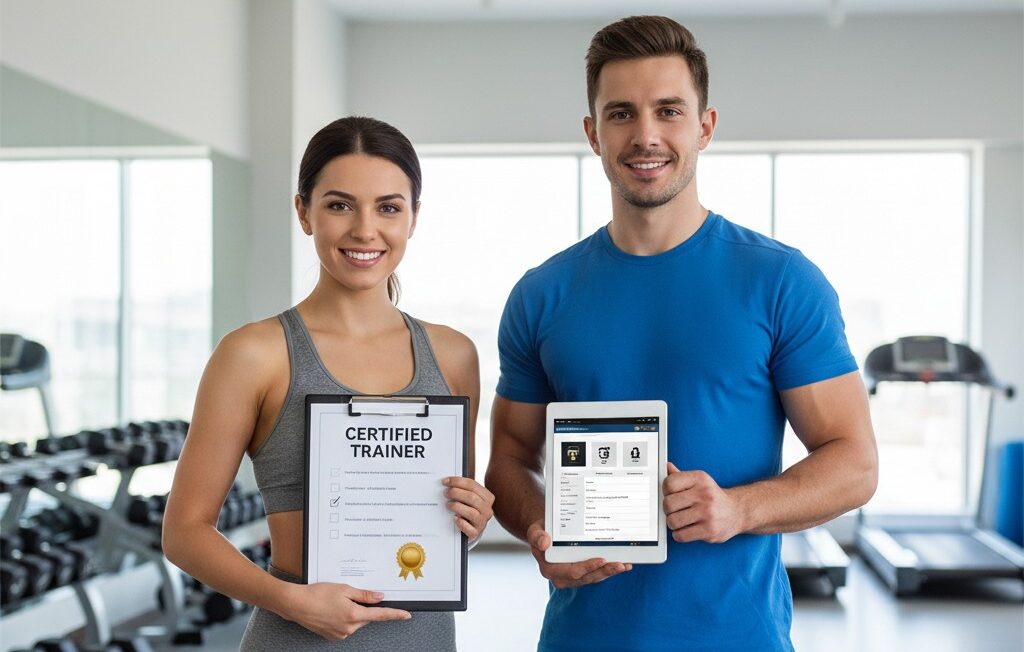Key Takeaways
- To become a certified personal trainer, you need the right certification, practical skills, and hands-on experience.
- Not all certifications are equal, some focus on general fitness, while others specialize in corrective exercise or strength training.
- Building a career means learning how to coach, market yourself, and create real client results, not just passing an exam.
- Beometry offers guidance on personal training education and real-world coaching methods to help you stand out.
Why Do You Want to Become a Certified Personal Trainer?
Fitness isn’t just about looking good anymore, people want strength, mobility, energy, and confidence. And they’re looking for someone who can guide them through all of it. If you’ve ever thought, “How do I get certified as a personal trainer?” or “What does becoming a certified personal trainer involve?”, you’re already on the right track.
But here’s the truth: being a certified personal trainer is not just about passing an exam—it’s about becoming someone who can genuinely help clients reach their goals, adapt to injuries, and make smart lifestyle changes.
For deeper insights into how training works, see our guide: Personal Trainer Fitness Guide.
What Does Being a Certified Personal Trainer Really Mean?
A certified personal trainer license proves you have the knowledge to train clients safely and effectively. But to stand out, you need:
- Practical coaching skills – Knowing when to push or scale back a workout.
- Understanding client needs – Everyone has different fitness goals and challenges.
- Adaptability – Being ready to work in gyms, studios, or small personal gyms where the environment is more client-focused.
Steps to Become a Certified Personal Trainer (Checklist)
1. Know Your “Why”
Before diving into certifications, ask yourself: Why do I want to become a personal fitness trainer?
Is it passion? A career change? Or a desire to help people move pain-free? Your reason will shape the path you take.
2. Understand the Requirements
To get certified as a personal trainer, most organizations require:
- Being 18 years or older.
- A high school diploma or equivalent.
- CPR/AED certification (so you’re prepared for emergencies).
3. Pick the Best Certification for You
There’s no “one best” certification, but these are widely respected:
- NASM (National Academy of Sports Medicine) – Ideal for corrective exercise and strength.
- ACE (American Council on Exercise) – Great for general fitness coaching.
- NSCA (National Strength and Conditioning Association) – Best for performance-based training.
Need more details? Check out our breakdown: Best Personal Trainer Certifications.
4. Learn Beyond the Textbook
Passing the test is important, but great trainers focus on:
- Movement assessments – spotting imbalances that lead to injury.
- Program design – tailoring workouts for each client.
- Nutrition basics – knowing how food supports training results.
5. Build Practical Skills Early
Start small:
- Practice with friends and family.
- Volunteer at local gyms or community centers.
- Learn from experienced trainers; shadowing someone in a small personal gym is often more valuable than large commercial gyms.
6. Prepare and Pass Your Exam
Use official study guides, practice exams, and hands-on learning. Studying in focused, short sessions beats cramming any day.
7. Think About Your Career Path
Once you get certified personal trainer credentials, what’s next?
- Will you work independently?
- Join a gym?
- Offer online coaching?
For help evaluating the business side of personal training, see our guide: Understanding the Cost of Personal Training.
How to Build a Career After Certification
Passing the exam is just the beginning. The trainers who stand out are the ones who:
- Keep learning (specialty certifications, like nutrition or slow-motion strength training, give you an edge).
- Understand the human side of training – listening, adapting, motivating.
- Know how to communicate value and results to clients.
Key Takeaways Before You Start
- Know your “why” and choose a certification that matches your goals.
- Practical skills and real-world coaching matter as much as the test.
- Keep learning and growing, being certified is just step one.
Are You Ready to Start Your Personal Training Career?
If you’re serious about how to become a certified personal trainer, Beometry can help. We bring real coaching experience, functional movement expertise, and proven strategies to help you move from certification to building a thriving career.Sign up today to learn how we can help you build a career that truly makes an impact!


